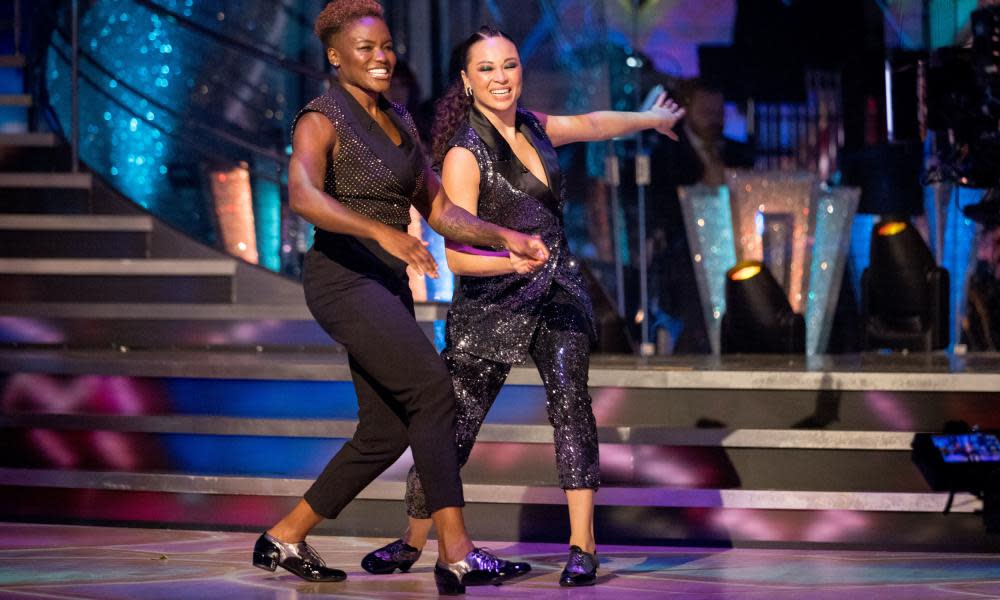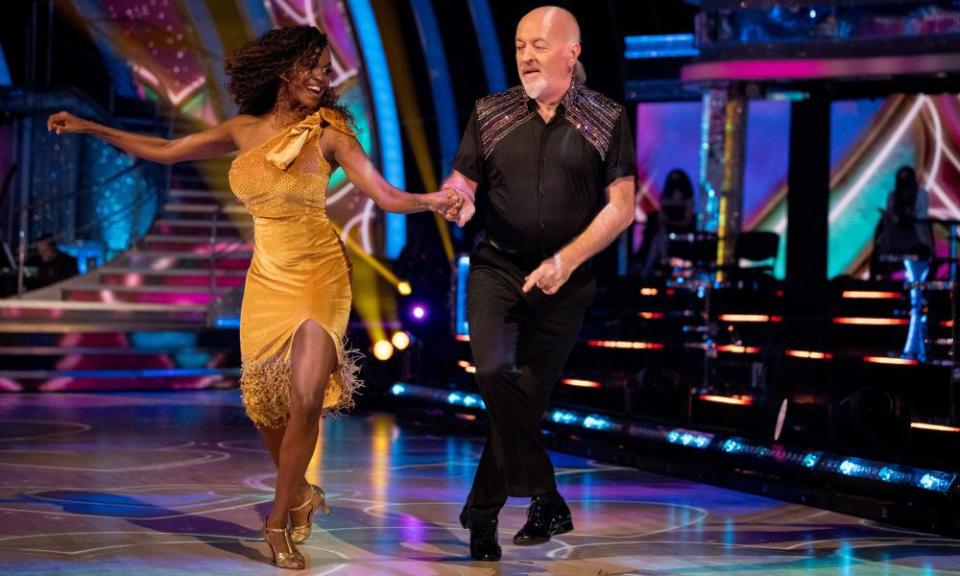Strictly Come Dancing opener with first same-sex couple proves a hit

Strictly Come Dancing achieved its best opening ratings for three years with a show that featured its first celebrity same-sex couple after the Olympic champion boxer Nicola Adams and dancer Katya Jones were paired together.
The BBC One show attracted an average of 8.6 million viewers on Saturday evening and took a 42.2% audience share with a peak audience of 9 million viewers, a spokesman for the programme said.
Covid-19 safety measures substantially changed the feel of the BBC’s most popular reality show. There was a reduced studio audience with mandatory face masks, and the celebrities and their professional dancers have formed support bubbles so they can closely interact.
This year there are 12 celebrity contestants instead of 15, with a reduced run of nine weeks rather than the usual 13. The cast will be tested twice weekly for coronavirus, and anyone found positive will leave the competition immediately.
Adams, who won gold at the London 2012 Olympics and again at Rio in 2016, said her partnership with Jones was “a brilliant step in the right direction, especially on the diversity side of things”.
Other couples include the comedian Bill Bailey and Oti Mabuse, who won with Kelvin Fletcher in 2019, while the Good Morning Britain presenter Ranvir Singh was paired with Giovanni Pernice and EastEnders’ Maisie Smith was teamed with Gorka Márquez.

The actor Caroline Quentin was paired with Johannes Radebe, the dancer who performed the show’s first same-sex routine with fellow professional Graziano di Prima in November 2019.
Strictly received 189 complaints after Radebe and Di Prima’s performance, with the BBC’s official complaints process stating that viewers “[found it] offensive to feature two men dancing as a pair”.
In September the BBC announced that Adams had requested and would be paired with a same-sex partner, after the corporation said it would be “completely open” to having same-sex couples compete on Strictly, following its previous stance of having no plans to change the mixed-sex format.
The 2020 opener markedly improved on last year, which launched with an average audience of 7.8 million, which in turn was down on 2018’s total of 8.1 million and 8.8 million in 2017.
The BBC has defended its decision not to disclose the Strictly hosts’ pay after criticism that it was not being transparent about the amount its “dream team” of Tess Daly and Claudia Winkleman are receiving.
The Mail on Sunday reported that Daly and Winkleman are each paid £350,000 and that the BBC had been able to exclude that information from its presenter pay list because the show is produced by BBC Studios.
The corporation confirmed that because BBC Studios is a commercial organisation, under the terms of the BBC Charter it is not required to disclose the pay of its hosts.
“This has been public knowledge since BBC Studios was formed in 2018. The government agreed it should be treated on a level playing field with independent production companies,” a spokesperson added.
The issue of pay transparency has dogged the BBC for the last three years. In 2017, when it first made public the pay of its top earners, it was revealed that just a third of its top-earning presenters were women.
Since then several female employees have either received back pay or substantial pay increases. The most high-profile case involved the presenter Samira Ahmed, who successfully took the BBC to an employment tribunal seeking more than £700,000 in back pay.
In September the BBC confirmed it had given pay rises to more than 700 female employees since the start of its equal pay scandal.

 Yahoo News
Yahoo News 
